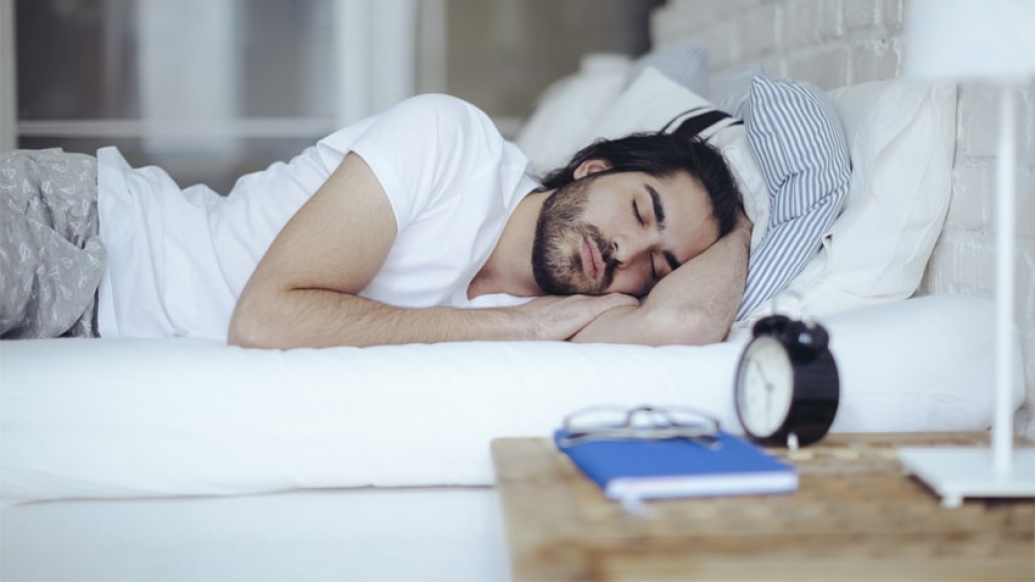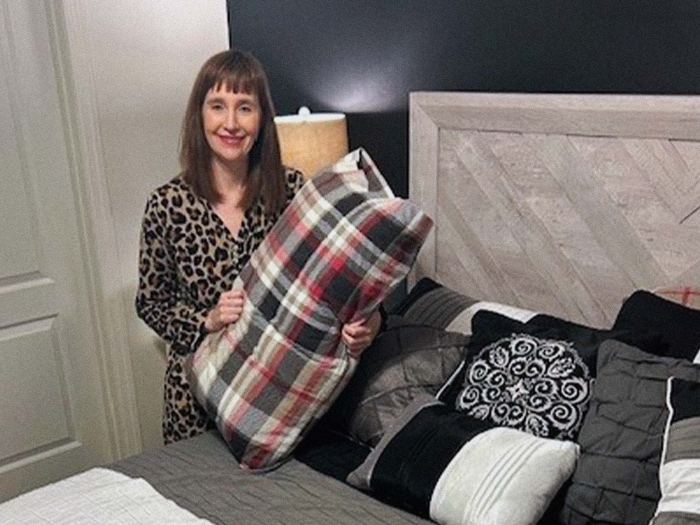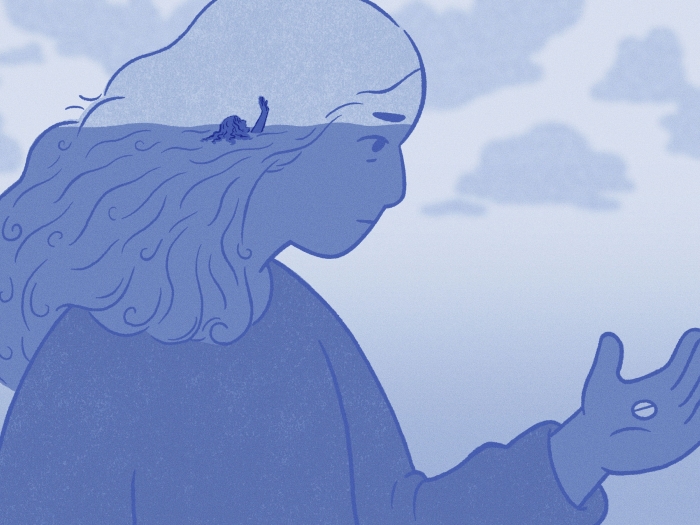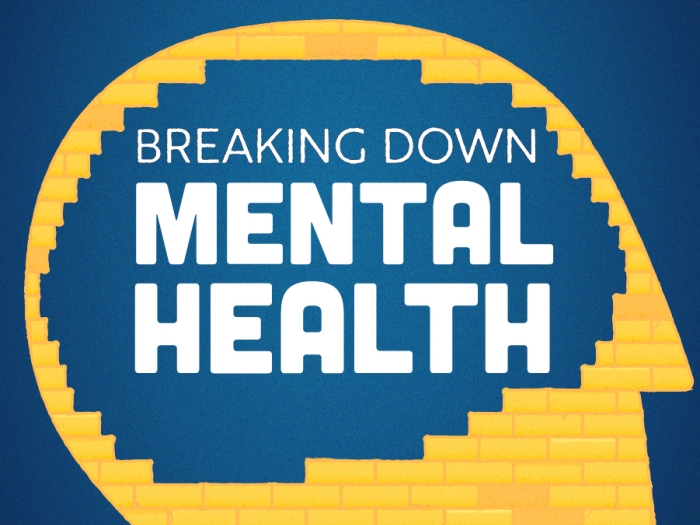Antidepressants are necessary for many with major depressive disorder, but response times and remission rates are a problem. U-M researchers find sleep might help.
7:00 AM
Author |

Medication is an important part of treatment for many patients with major depressive disorder, but the transition to antidepressants isn't always smooth.
SEE ALSO: 1 in 4 First-Year Residents May Meet Criteria for Clinical Depression
It can take six weeks for a person to respond to pharmacotherapy. And with remission rates at about only one-third, the majority of patients with depression could also benefit from better overall response to medication.
Researchers at the University of Michigan who specialize in both psychiatry and sleep medicine found a potential way to help. A precise sleep schedule could affect antidepressant remission rates and response time, researchers found. But not in the way they thought.
It's important to find practical and safe strategies that can enhance our traditional depression therapies.J. Todd Arnedt, Ph.D.
More, not less, sleep
Previous studies, mostly in inpatient settings, found that total or partial (four- to five-hour) sleep deprivation on a single night improved mood the following day for about 60 percent of patients. This extreme amount of sleep deprivation is not, however, practical or safe for patients in their own homes.
In the new U-M study published in the Journal of Clinical Psychiatry, 68 adults were assigned to spend either six or eight hours in bed each night during their first two weeks on the antidepressant fluoxetine.
It's the first study to assess the mood effects of a modest time-in-bed restriction on outpatients. Sleep and mood were measured daily for the first two weeks, and mood measurement continued weekly for six more weeks after the patients returned to their preferred sleep schedules and continued fluoxetine.
"It's important to find practical and safe strategies that can enhance our traditional depression therapies, so we decided to evaluate a more modest amount of sleep deprivation that could easily be implemented alongside medication treatment," says J. Todd Arnedt, Ph.D., principal investigator and U-M associate professor in psychiatry and neurology. "Although we predicted the group with restricted time in bed would have a better response, based on previous sleep deprivation research in depression, we actually found the opposite."
Surprisingly, the group who spent the full eight hours in bed each night showed greater improvements on all fronts. The subjects were almost twice as likely to achieve symptom remission after the full eight weeks of antidepressant treatment—63 percent compared with 33 percent in the six-hour group. They also experienced a faster response to treatment.
"This is the first study to demonstrate that adequate sleep might accelerate and augment antidepressant treatment response," Arnedt says, "but more research is necessary."
REM versus slow-wave sleep
Of the subjects who spent six hours in bed, one group was told to stay up two hours later and the other to wake up two hours earlier. The researchers wanted to assess whether changes in deep slow-wave sleep or REM (dream) sleep affected response or remission rates. Previous studies had produced contradictory findings about whether treatment response was related to changes in particular sleep stages.
After two weeks on the six-hour schedule, overnight polysomnography verified that the subjects who woke up two hours earlier experienced a significant reduction in REM sleep while those who stayed up later experienced an increased amount of slow-wave sleep. But no differences in treatment response were found between the two six-hour groups.
"This research did not support the specific role of either slow-wave sleep or REM sleep as critical to treatment response," Arnedt says.
Tracking compliance
Wearable technology allowed the researchers to know just how well their subjects were following their time-in-bed instructions.
SEE ALSO: Can a Website Keep Suicidal Thoughts Away?
The ActiGraph devices, similar to a Fitbit but able to detect sleep more accurately, use movement sensors to determine if patients spent their assigned hours in bed.
The group tasked with eight hours in bed mostly adhered to the schedule. But the six-hour group had great difficulty. The early-rise-time group spent nearly an hour more time in bed than instructed.
"These findings tell us that, even if the six-hour condition had yielded better results in terms of treatment response, patients would be unlikely to follow a clinical recommendation to spend only six hours in bed during the initial two weeks of antidepressant therapy. So, this is a strategy that is not practical for implementation in outpatient settings," Arnedt says.
Looking ahead
Because this study was designed to primarily evaluate the effects of restricting time in bed on antidepressant treatment response, the next step, Arnedt says, is to directly assess whether optimizing or extending sleep time while initiating antidepressant therapy improves response. Optimization of the sleep schedule would involve considering not only how much people are sleeping but also individual factors such as a subject's preferred sleep and wake times and sleep quality.
The team is also interested in more sophisticated measurement techniques, such as brain imaging and high density EEG, to further examine the impact of directly manipulating REM, slow-wave sleep and other aspects of sleep as well as factors implicated in treatment response.
In the meantime, Arnedt recommends paying closer attention to how, and how much, patients are sleeping when they begin antidepressants. Patients beginning a new antidepressant should be cautioned against restricting their time in bed because it could influence how quickly and effectively they respond to the medication.
"Eventually, we'd like to identify combinations of sleep and circadian treatments that are independently effective for depression and that can be used practically and safely in inpatient and outpatient settings," he says.

Explore a variety of healthcare news & stories by visiting the Health Lab home page for more articles.

Department of Communication at Michigan Medicine
Want top health & research news weekly? Sign up for Health Lab’s newsletters today!





